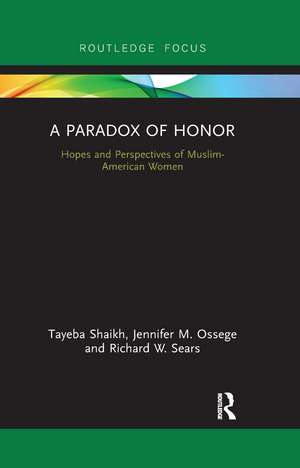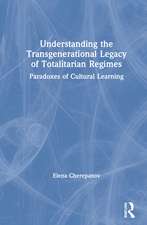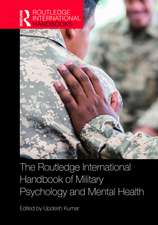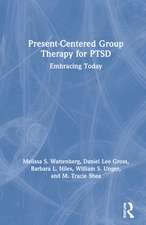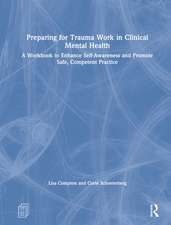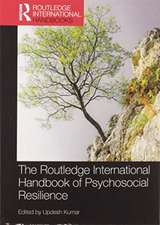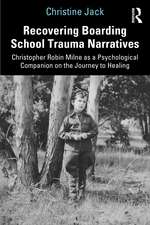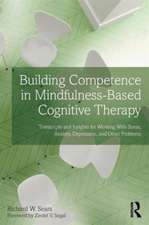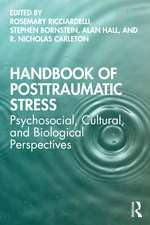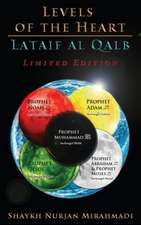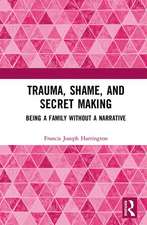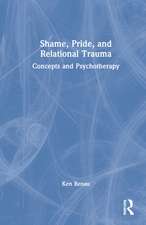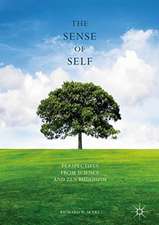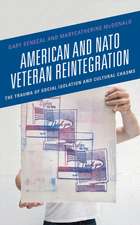A Paradox of Honor: Hopes and Perspectives of Muslim-American Women
Autor Tayeba Shaikh, Jennifer Ossege, Richard Searsen Limba Engleză Paperback – 30 iun 2020
| Toate formatele și edițiile | Preț | Express |
|---|---|---|
| Paperback (1) | 142.32 lei 6-8 săpt. | |
| Taylor & Francis – 30 iun 2020 | 142.32 lei 6-8 săpt. | |
| Hardback (1) | 452.84 lei 6-8 săpt. | |
| Taylor & Francis – 20 apr 2018 | 452.84 lei 6-8 săpt. |
Preț: 142.32 lei
Preț vechi: 170.51 lei
-17% Nou
Puncte Express: 213
Preț estimativ în valută:
27.24€ • 28.33$ • 22.49£
27.24€ • 28.33$ • 22.49£
Carte tipărită la comandă
Livrare economică 14-28 aprilie
Preluare comenzi: 021 569.72.76
Specificații
ISBN-13: 9780367607142
ISBN-10: 036760714X
Pagini: 88
Dimensiuni: 138 x 216 mm
Greutate: 0.45 kg
Ediția:1
Editura: Taylor & Francis
Colecția Routledge
Locul publicării:Oxford, United Kingdom
ISBN-10: 036760714X
Pagini: 88
Dimensiuni: 138 x 216 mm
Greutate: 0.45 kg
Ediția:1
Editura: Taylor & Francis
Colecția Routledge
Locul publicării:Oxford, United Kingdom
Public țintă
PostgraduateCuprins
Introduction
Chapter 1: New Lights in Familiar Places: Autoethnography
Chapter 2: When Morals Mean Murder: The Reality and Prevalence of Honor Killing
Chapter 3: Exposure: The Role of Media: Mainstream Media is a Primary Resource of Information Regarding Honor Killings for Muslim American Women
Chapter 4: Liberation through Education: Education is an Essential Component to End Honor Killings
Chapter 5: Religion Matters: Religion is Considered a Foundation for Instilling Values and Morals
Chapter 6: Blurred Lines: Religion, Culture and Tradition are Concepts that are Deeply Interwoven and are Difficult to Differentiate
Chapter 7: A Multitude of Meanings: The Term Respect was Used in Place of Honor in the Home
Chapter 8: Calibrating the Compass of Self: Self-Respect is an Integral Part of Learning How to be Honorable
Chapter 9: Honor is Thicker than Blood: Family is a Core Value when Discussing the Concept of Honor
Chapter 10: Emerging Hope: Summary & Conclusions
About the Authors
Chapter 1: New Lights in Familiar Places: Autoethnography
Chapter 2: When Morals Mean Murder: The Reality and Prevalence of Honor Killing
Chapter 3: Exposure: The Role of Media: Mainstream Media is a Primary Resource of Information Regarding Honor Killings for Muslim American Women
Chapter 4: Liberation through Education: Education is an Essential Component to End Honor Killings
Chapter 5: Religion Matters: Religion is Considered a Foundation for Instilling Values and Morals
Chapter 6: Blurred Lines: Religion, Culture and Tradition are Concepts that are Deeply Interwoven and are Difficult to Differentiate
Chapter 7: A Multitude of Meanings: The Term Respect was Used in Place of Honor in the Home
Chapter 8: Calibrating the Compass of Self: Self-Respect is an Integral Part of Learning How to be Honorable
Chapter 9: Honor is Thicker than Blood: Family is a Core Value when Discussing the Concept of Honor
Chapter 10: Emerging Hope: Summary & Conclusions
About the Authors
Notă biografică
Tayeba Shaikh is a clinical psychologist in the New York City area, and Adjunct Faculty at the University of Cincinnati and Union Institute and University, United States.
Jennifer M. Ossege is a clinical psychologist and owner of Viewpoint Psychological Services in Northern Kentucky, and Adjunct Faculty at Xavier University in Cincinnati, Ohio and Faculty at Union Institute and University, United States.
Richard W. Sears is Director of the Center for Clinical Mindfulness and is an associate professor at the University of Cincinnati, Ohio, United States.
Jennifer M. Ossege is a clinical psychologist and owner of Viewpoint Psychological Services in Northern Kentucky, and Adjunct Faculty at Xavier University in Cincinnati, Ohio and Faculty at Union Institute and University, United States.
Richard W. Sears is Director of the Center for Clinical Mindfulness and is an associate professor at the University of Cincinnati, Ohio, United States.
Descriere
Based on original interviews of twenty-two Muslim American women of South Asian descent on the topics of honor and honor killings, this book examines honor and culture and intersections with power, tradition, gender, family, and religion.
